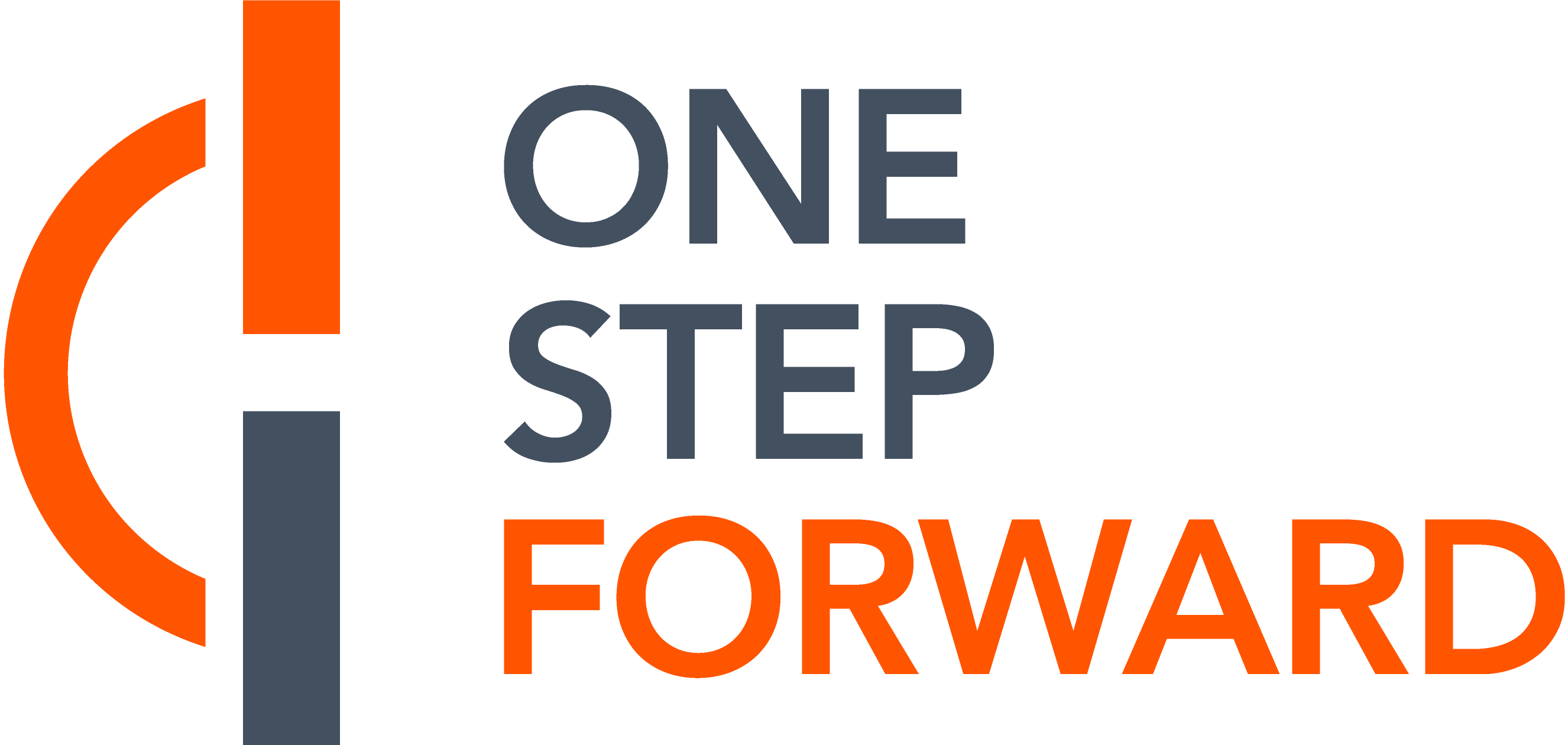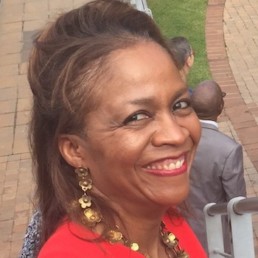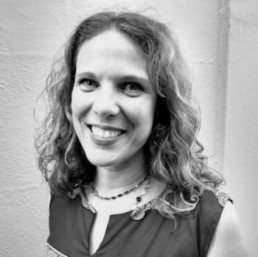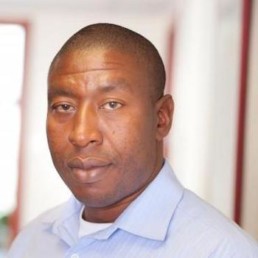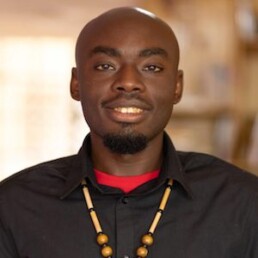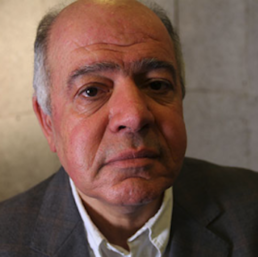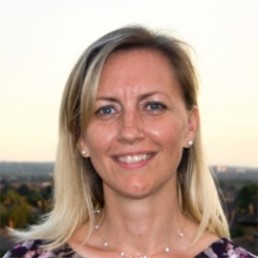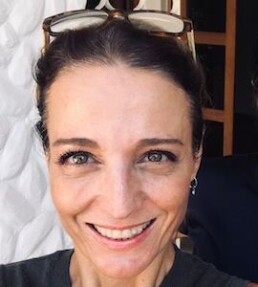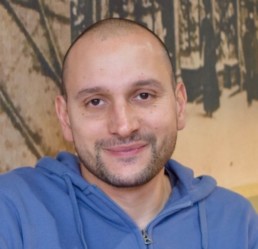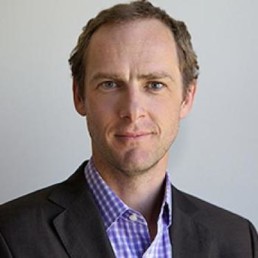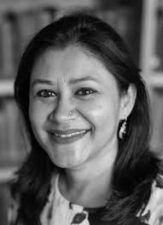collected thoughts:how we think and talk about failure
The community organiser | The outside observer | The activist
The ex-combatant | The poet | The evaluator | The political director
The emergency manager | The human rights researcher | The lawyer
Introduction
One Step Forward is a podcast about the ethics and practice of public service in tough situations, and dealing with adversity has always been a central theme. A few quick thoughts on what has become an ongoing conversation between guests.
There’s a sort of trap in working on the toughest social problems — entrenched violence, breakdown of governance, endemic disease, and the like.
The work’s appealing because the stakes are so high, and there’s a prospect of making “a real difference”. But at the same time, clear successes are few and far between.
The consequence is that people who spend their career in this kind of public service must constantly grapple with failure. Not the sexy “failing fast” that people tout in the tech sector, but serious failures of social and political institutions that carry a heavy human cost.
My own formative experiences as an international civil servant were unarguably policy and practical failures.
I’ve written about this extensively elsewhere, and so won’t go into it here. Suffice it to say that it required some serious thinking about the kinds of work, and the kinds of specific role, that I wanted to take on going forward.
The first principle here was the most basic — do no harm. One of the big stories in international development and humanitarian worlds in 2020 has been the growth of an anti-racist movement. Amongst other things that means seeing success and failure from the outside of the system, rather than blindly following technical metrics that the people you’re trying to serve didn’t define for themselves.
The second principle was to try my utmost to be more historically-informed, and to take a wider frame of reference. On issues like peace and conflict I don’t think we do know, a lot of the time, what success really “looks like”. I think it’s important to be a bit humble and curious in defining that with people.
On the podcast we’ve had a lot of different takes on this, from guests who’ve spent their adult lives working on incredibly difficult problems. For me these weren’t competing views, but rather enriched each other, and helped me to think about public service a bit differently.
One school of thought rejects the premise indignantly. The very idea that we can label huge social problems as “failures” stigmatises the people involved, and attributes way too much agency to ourselves as public servants. You’ll see this below in perspectives from Haiti (Marie-Rose), from Zimbabwe (Farai), and from an academic researcher on humanitarian work (Gemma).
Another important corrective is to re-centre the problem. The fixation on metrics and institutions is undoubtedly an extremely Western, and probably masculine, way of thinking about things. A plausible alternative is an ethic of care, to use a bit of jargon, that puts the emphasis on changes in inter-personal relationships. We have heard this a LOT on the podcast but the extracts below are perhaps from surprising sources — an ex militia commander (Assaad), a professional evaluator (Kathryn), and a poet (Onyango).
A third group is pragmatic. We hear from a human rights researcher (Lewis) and a manager in humanitarian emergencies (Tariq), working in some of the toughest crises in the world, that failure is part of the job. If you don’t recognise there’s value in the work itself, and expect to see obvious results, you’re not going to last.
A last few perspectives, meanwhile, emphasise personal responsibility. They told me, in effect, that they didn’t get into public service to do unproductive work (Donata, and Preeti). If they see that they’re not contributing, then it’s time to make a change.
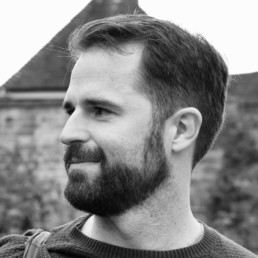
Marie-Rose Romain-Murphy (ep. #008)
Marie-Rose helped establish a community foundation in Haiti. I asked what it was like to interact with international partners who labelled Haiti a “failed state”, or felt that engagement wasn’t producing results.
We have a terrible brand. We have a terrible, terrible brand. Trust me, I have to deal with it as an individual, as a professional, I mean I’ve got to deal with it all my life. And it’s easy because people think if you’ve gone from a poor and under-developed country, your mind is like that, and they have low expectations.
I mean what is the first thing that people often people say about Haiti? It’s the poorest country in the West. The other day I gave people a shock when I said ‘I come from Haiti, one of the richest countries in the world, in terms of culture, history, and the spirit of our people.’ So it was like, ‘Oh.’
And I mean it! I think that people are doing us a disservice and I think a lot of us are saying, ‘It’s time to change the narrative.’ It’s not just a disservice, I think at this point that it’s almost criminal. You don’t not going to invest deeply, in the long-term, in something hopeless. You throw us some money. You throw us some bones, and I feel like this is what we’ve been getting. You don’t invest very deeply into something that you believe doesn’t have a future.
So this is very detrimental. You also don’t invest in people that are not investing in themselves. Except the narrative of people investing in themselves, in Haiti and abroad, is not being shared. It’s not being talked about, because it’s easier to make space for the white saviour, and for the entire system of aid and international development. And Haiti is not alone, that’s the way it goes.
But this also needs to change. It is not acceptable. We are leaders. Every day in Haiti in small communities you have people that are the go-to people, that try to find the resources to help, at great cost to their health and their lives. You have small community organisations that are fighting for their people.
The idea that it’s all going to be dismissed because it doesn’t fit in some international aid … it’s not being acknowledged, because it cannot feel like a 100 page report. It’s obscene, and it’s unacceptable.
Gemma Houldey (ep. #022)
Gemma is a researcher who looks at stress and wellbeing in the aid sector. We discussed how people in the humanitarian sector talk about their work, and measure success in their careers.
I have an archetype that I describe [in my PhD work], which is the ‘perfect humanitarian’.
There’s particular qualities associated with the perfect humanitarian and it’s often what we see on our TV screens. The central image is usually a white western aid worker, from a high-income country, who’s made the sacrifice to travel to a poor country or a war-affected country.
You know, they’re working really hard. They’re dedicated to their job 24-7. That’s what they do. And there’s a certain kind of heroism to it, a certain type of gung-ho, ‘I’m going to go in and just go for it’.
It’s almost … people refer to ‘cowboys’, this kind of cowboy culture of smoking and drinking and really getting into the nitty gritty of taking risks in these environments.
And yeah, we all feed into that. I think as people working in the sector there is a bit of a rivalry as to how many war wounds you can gather along the way, how much trauma you can have, how much you cope with it and carry on as well. So the perfect humanitarian is the person that keeps on going in that environment, or they go from one emergency to another, flying for one to another every few years, and they don’t really have much of a family life and their private life is supposedly not part of the picture.
Like their life is their work. And I think that’s problematic for a number of reasons.
I think it’s not letting us see the multi-dimensional elements of every human being. That we all come with our hopes, our desires, our fears, our self doubts. We have our emotional baggage, we have our family. We have histories. And those don’t always get much of a location.
Also it’s … I argue it’s kind of a racialized image. This perfect humanitarian, it’s assuming that you have the knowledge and the capacity and the status to cross borders, and go fly from one place to another, and that you also don’t have too much family getting in the way.
I think that image is very much focused on a particular type of individual, and that individual is often from Europe or from America. We don’t hear so much about the people that are working in those countries permanently, and living there, from those countries, whether it’s an African country or in Asia or the Middle East.
Farai Maguwu (ep. #004)
Farai is an activist working on governance of the extractives sector in Zimbabwe. This is a tough and often violent sector which takes its toll on him and those close to him, and he shared this recent experience.
It’s very tough. It’s disheartening. I will tell you that my heart is in the communities and many times when I spend a day in the field, and I see the hope of the people in the message that we’re bringing to them, the acceptance of our message for the community.
And I look at the thinking of the government, of the politicians, I’m depressed. When I come back home from some of these meetings, I come home depressed. To say, ‘what more can we do to push this agenda?’
You come back with an image of that woman was venting her anger and her frustration and some of the words continue to ring in your mind for days after that workshop. And then you go and speak to these bureaucrats and try to raise the issue …
I’ll tell you a story. Two years ago I went to a place called Arda Transau, where the community was displaced from Marange. Like I told you earlier, they were promised free water, but then later on the taps were disconnected because the community couldn’t pay. They were not working, they had no source of income.
So I passed through this deep well. Well actually it was on the surface, it was less than five centimetres deep. And so this woman, this old woman, she was in her seventies, and she was fetching water from this unprotected well. The water was slowly welling up from the ground and it would take about 30 minutes for her bucket, for the 20 litre bucket, to fill up.
I left that place, and in town I saw the provincial administrator withdrawing cash from the Standard Chartered Bank. I walked up to him and asked him, ‘Sir, I’ve been Arda Transau, and this is what I saw. This old woman trying to fetch water from an unprotected well, where cows are also drinking. And you are the one who displaced these people. What are you thinking about the issue of access to safe drinking water for these people?’
And we had a very harsh exchange after that. ‘Just leave me alone my friend, I am here to withdraw money and not to quarrel with you, so just leave me alone.’ And then he went to withdraw his money.
These are the kind of frustrations that we encounter sometimes. When you’re dealing with the community, you really endear yourself with the community such that their problems become your problems. And then you come to the government, and the government is so callous, they really feel it is none of their business.
I’ve spoken with several people who’ve shared similar experiences dealing with gross human rights violations. In which there was very little progress, there was very little seriousness on the political side to address these issues.
How do you manage that? I mean, how do you stay motivated? How do you stay sane, continue to show up to work every day, keep that in perspective?
That’s a very interesting question, when you asked it I also began to ask myself. I never thought about it. But what keeps me motivated, I’ve got a very clear vision that things can be done differently. It’s like the famous Martin Luther King speech that I’ve been to the top of the mountain and I’ve seen the promised land.
So in my mind it’s very clear that not only Zimbabwe, but the whole of Africa, it can transform itself very rapidly if the leadership develop this mindset, that’s let’s use our resources to improve the welfare of our people on the continent.
So the things that we are calling for, they are even easier to do than to go to Europe begging for arms. We simply say, take care of what is in your backyard before you go to your neighbour begging for help.
So the self-evident nature of the things that we are calling for makes me very enthusiastic, that’s what I’m saying. It makes perfect sense. And I’ve also moved to a legacy issue where I also want to be remembered when I’m gone, that I stood up for what is right, and I risked my life for something that is right.
So I have the belief that even if the current politicians do not take our views into consideration in their planning, in their governance, maybe if we write these things down, who knows, maybe in the next 5-10 years, we shall have a truly pro-people government
Onyango Otieno (ep. #033)
Onyango is a poet and story-teller who helps fellow Kenyans process serious trauma and live their lives a bit better and more happily. A lot of the time, this relates to big-picture social & political issues like gang activity and abusive policing.
A lot of the problems we are trying to solve are humongous. They’ve been here for the longest time, and they are structural problems at the base, right? You can’t say you’re going to change one individual, and they’re going to change a whole town, or that kind of thing.
But for me, the biggest tools of change are human resources, and when you empower the people, it spreads on its own. These people are attached to other people. They don’t work in isolation, they are attached to other people.
So the power of this program is that when I go back to where I came from, before I came to the workshop, I have new information for somebody who can listen to me. It may not necessarily be at home, it may not necessarily be in the workplace, It can be somewhere else where I feel I can exist.
Because a lot of the guys who come barely have relationships that work. We give them an imagination that you can create friendships and relationships that work for you, despite the difficult things you’re going through.
So that in the groups you are working with, they can start mobilizing each other, and say, ‘Can we take this information back home, or in our workplaces?’. Or say, ‘Okay, this is maybe how we need to start treating each other’, and hence just create better spaces for people.
That’s something I really believe, that all of us are looking for space. From my personal discoveries, a lot of people who’ve grown up traumatized have lacked space to express themselves. Because of that lack of space, they feel they didn’t have options, so they had to resort to other ways of surviving.
If those ways did not exist, some people ended up, you know, taking their own lives, or resorting to crime, or struggling with addictions or that kind of thing.
So this program is designed to help people get space within themselves, and understand what space means, so that they can offer it to others. So that they could even start imagining what it is to understand other people, because when you feel misunderstood, it’s also very difficult for you to understand other people.
Assaad Chaftari (ep. #012)
Assaad was a well-known commander in a Lebanese militia. He now works with a group called Fighters for Peace that works against divisive social and political narratives. I asked whether there were particularly successful or notable initiatives that he wanted to mention.
Nothing is successful. I’ll tell you why. What we do, or what we’re trying to do, is not quantifiable.
And it’s annoying, because you never know the impact you had, or the intimate decisions that people make who are listening to you. Or even who were attacking you, but at a certain level you felt that their eyes stopped, and they started thinking, introspecting. You know, you never know what happens in the heart of people or in the mindset.
Of course, some reactions are obvious. Some kid comes and tells you, ‘I wish my dad was listening to you because I would like him to change.’ For example. Or someone who tells you that a Palestinian who lost six of his own in a massacre, or you call it a battle, whatever. Who tells you, ‘Tonight, I’m reconciled after listening to what you have to say.’
Okay, these are very rare. But when you meet the number of people we meet during the year, you know, I don’t try to know anymore. Because we are asked ‘How was the meeting? Was it is a good meeting?’
I tell them, ‘What do you mean? Did they applaud? Yes, if this is what you need to know. But what impact it had, I cannot say.’ Because maybe one of these young people … because we meet all kinds of people but the majority is young people, just as our main target.
Who knows if this young guy or this young lady won’t be heading a political party in thirty years. And will at that point, not meanwhile, remember a sentence that she or he heard during this evening. And then hesitated one second. This would be enough for me. A second of hesitation when the drums, the drums of war, start playing. One second of hesitation. It would be enough for me.
Because imagine one person who refrains from using violence. One person. The person who would have been the victim of this person is also someone gained to the cause … and the reaction of the parents of this victim, who won’t do anything to a perpetrator, or to one of the Others.
It’s a complex thing but this is how, sometimes, I see the future of our work, you know. It starts with a second.
Kathryn Rzeszut (ep. #021)
Kathryn managed cross-border monitoring of international “stabilisation” assistance in Syria. We discussed her thoughts and feelings as the Syrian war took a decisive turn in the south and north-west.
But you know, if you look at how things have gone in southern Syria or in other places in the northwest where the government has taken over … I don’t necessarily think that the local councils or other governance institutions that the Western coalition supported have necessarily remained intact or will be able to play a big role, in whatever comes next in those areas.
Because the perspective of the Syrian government is, and the narrative that the Syrian government has put around the opposition, is that they are terrorists.
That’s quite sobering, no, for four and a half years of your life?
It’s been quite hard to watch. I think moving back to DC, having a couple of months to start to digest it, it’s definitely starting to hit me in ways that you don’t really expect.
Do you take something positive from that?
Starting at the personal level, I take away the experience of working with an incredible team.
My team was small. The majority of the people on my team were Syrian, and they were just highly motivated, very dedicated and hardworking, and wanting to do something positive in the middle of their country falling apart.
And, you know, watching—each of them had very difficult personal circumstances—and watching them navigate those with grace and resilience was an incredibly humbling thing for me. To see at a personal level the enormous capacity that humans have for kindness and grace in the face of a lot of pain and suffering. It’s a thing that I take away from that on a personal level.
From the big picture, the work that went into Syria, not just the program that I was monitoring, but humanitarian work, the other stabilization programs … I keep going back to education, and it’s because of my previous job at the university.
I worked on education in emergencies, and it is something that is often neglected in humanitarian crises because people are so focused on that immediate life-saving aid. But ensuring that an entire generation of children don’t lose out on education is so important.
That’s one of the things that I take away. That even in the midst of incredibly violent conflict, the work that was going on to create some sort of stability and normalcy in people’s lives, it’s worth doing. Even from that life saving perspective.
Also, that type of programming is trying to address the roots of conflict, and ensuring that when the conflict does end there’s a space for peacebuilding and reconciliation to take hold and to me that that is work worth doing.
It’s an interesting reversal or inversion of the usual meaning of stabilisation. At the household level, or at the individual level, without expectation of a final resolution, there are things that can be done to sort of normalise to some small extent people’s living conditions and life trajectories despite the fact of conflict.
That’s one of the shifts, perhaps, in my perspective over the past four and a half years.
You know, we’re often looking at it from the bird’s eye, or strategic level view, of this type of programming. But where you might see results more immediately, or where you’re making an impact in someone’s life, is at that granular level.
It doesn’t lend itself to easy monitoring … or everyone talks about attribution. You want to make sure that the money that governments are providing is paying for the results that you want to see. And how do you evidence that?
A lot of times the programs where you get the stories from the people who have received the aid, or who are going to the health clinic in their communities rather than taking the harrowing journey 10 kilometers down the road, that is really hard to quantify. And being able to aggregate all of those stories of how this has impacted my life, and to show how these programs are making that larger level impact.
That’s the challenge and something that we’re not necessarily consistently, or doing an a way beyond x number of patients came into the health clinic, or we provided x number of meals to people.
It’s asking that question of, ‘So what, so you provided this assistance, how did that impact people’s lives? You know, what changed for them?’
Donata Garrasi (ep. #029)
Donata has worked for twenty-five years at the meeting point of politics, conflict and development. Much of this was in places where the trends were stagnant or negative (e.g. Afghanistan and DR Congo). I asked about how she felt about this looking backwards.
Yeah. I struggle with that all the time. All the time. I think I struggled with that in the past, and now even more because I’m thinking, ‘Well, I should be better able to influence it in a positive direction’.
Very sadly, some of the countries I have worked with, and where I had a great experience both professionally and human-ly, because that’s what’s why I’m interested in our work, the human side of things and all of that … have gone in a not-so-positive direction.
It does really make me think a lot about what we’re doing as professionals in this field, what the organizations we’re working with and for are doing. And it makes me doubt a lot.
So much so, that even when I had my little breaks in between one organization and the other, and when I did consulting, I very, very seriously considered changing course, because it is extraordinarily disempowering to see things going wrong.
What I was taught by my several supervisors and mentors, most of them, all of them much wiser than me and with much more experience is that ‘Yes, but the thing that we always say, what if you were not engaging, would things be better?’
Now for me, the problem is that yes, I need to try, but sometimes when situations are really not going in the right direction, and you’re completely useless, you really have to wonder, shall I continue to work on this issue in this sector, in this country, with this organization, or not?
And you really should consider the option of pulling out if you feel that you’re not influencing positive change. Of course, I don’t want to be arrogant, and I never really had the idea, you know, ‘I’m going to change Afghanistan or the situation in Afghanistan’. I think we’re all aware of the much bigger geopolitical considerations. But it’s a great disincentive to continue to do this work.
I have no solution for that. Some people are eternally optimistic and they think ‘Yes, it’s going badly, but it will improve’. I’m in the middle, I try to keep on thinking, ‘Okay, well the situation is getting worse, so we need to try to improve it’.
Now if my work, or my organization, directly are influencing the negative developments, that for me is a no-go. So I would probably pull out if I realize that I can’t change it, or I can’t influence it.
Maybe it’s a sign of defeat. I was told that in the past because it might have happened on a few occasions, and one of my moves out was because I thought there’s nothing else I can do here. But you’ve got to balance your integrity, you know, your sense of integrity, with real life and real politics and real everything else. But it’s a tough … it’s a tough choice in our line of business I think. Very, very tough.
Are we introspective or self-critical enough in the sector about that? Recognizing when a change of course is needed, when we’re not individually playing a constructive role — or do we earn too much on the side of the optimism that you mentioned?
This is a very interesting question. I would answer this way. I’m really encouraged in the past few years, particularly, by seeing many of my former colleagues, friends, pulling out. And when I say pulling out it’s not admitting defeat, okay?
Pulling out of situations that they felt were going in the wrong direction, that they couldn’t influence. A significant number of people, highly respected professionals, throughout their life they’ve worked with a lot of integrity and commitment and et cetera, saying ‘That’s enough. I can no longer be a part of it’.
I don’t know if I’m seeing it now because we’re all growing up, besides the actual age, but we’re growing up into our profession. We are more confident about what we want and not want, and so on and so forth.
But I’m really encouraged by the number of former colleagues and friends who are taking a very critical and conscious decision about their career, and how they can either continue to work in this field but do it differently, or even stop working this field because they don’t feel that they can play a positive role.
I respect that very much. I think no one should feel forced or compelled to keep on going because your organization keeps on going.
And I would probably find myself in that group when and as I would think that my contribution is really not going to make a big difference, and on the contrary is contributing to a not-positive outcome.
I go back, as I mentioned at the very beginning, I go back to the point that I really never forget my first years of experience in refugee camps at border of Liberia. Because those were the times where you are confronted with why you’re doing this job, with the reality of it.
So you cannot forget that. You know, you cannot sit down and just think, ‘Oh well I’ll write another paper, or write another policy’. That remains, and I don’t want that to go away. So if I can’t do something that is decently okay, then I think twice about keeping on doing it.
Tariq Riebl (ep. #001)
Tariq has managed emergency responses in a dozen or more major crises. We discussed the unique difficulties of “getting it right” in urgent and often rapidly-evolving situations.
There’s lots of camaraderie and lots of rapport that you build up, where there’s an instinctive level of trust and a high level of shared values. So what was great was having people where we’d have very frank discussions about things.
I remember in the Ebola crisis where we were hopelessly late in deploying, but we also didn’t have the expertise of someone like MSF in terms of dealing with those sorts of issues. We had discussions which were loud, which were noisy, and where everyone was challenging everyone.
There were times where I let myself be overturned on key issues. I gave an ultimatum and said, “Okay, we’ll do it your way. If it doesn’t work in six days, then we do it my way.”
And actually there, after we did a ton of work their way on that issue, I went to them and apologized and said, “You know, I made a mistake.” I said that also in front of the whole team. But I said, “I’m happy that we listened to what you said, and not what I said, because you were right.”
A lot of this is not science. A lot of this is instinct. I think that’s one of the key things I always say, if we are really good at in this work, we are right 70% of the time. All of our monitoring & evaluation models, we’re always giving absolutes, right? 100% success rates. And we preach that.
But that’s completely ridiculous in these contexts. You’re going to make huge mistakes, and you’re going to make tons of small mistakes, all the time. All the time.
And the second part, I was saying, was that we’re making decisions with 50% of the information available. It’s so dark, you know, it’s the fog of war … but also the fog of the typhoon, the fog of Ebola. You do not know, and sometimes you will never know.
Then the final thing I would say is that it’s better to make a bad decision than no decision. Always, always better. And then own that decision. So there were many calls where I told bosses that I screwed up, or the team screwed up. But usually I said ‘I’ to them, if they weren’t on the call, and said, ‘We screwed up, you know, we made the wrong decision, and next time we’ll do better’.
That is really important, that people see that, because I think when you have the ability to make mistakes, that frees you up, that builds confidence and people realise that.
Lewis Mudge (ep. #002)
Lewis is a human rights researcher. We were discussing experiences in the Democratic Republic of the Congo and the Central African Republic, where the trends had been very bad over the previous few years. I asked how he stayed motivated in light of this.
You manage it a couple of ways. Number one, you recognise that you’ve chosen to work on this area, not because it’s easy, but because it’s tough. And that there is value in getting the word out there, and I say that in a very general sense, whether that be through the media, whether it be through folks who are policy-makers that read it.
I mean at the end of the day, something like Yemen or Syria, these things that seem intractable, is it better that we simply don’t know about it, or should we continue to know about it, while we’re trying to slog through and figure out how to stop killing each other? You know? I believe in the second, in the latter, that we should know about these issues.
I mean in C.A.R., there is no solution on the horizon as to how this country is going to become, just in terms of being realistic, like a basic functioning state in which the majority of the territory is not controlled by armed groups. We’re not talking about the other issues of quality of life education levels, you know, development, roads, infrastructure, all that stuff …
So yeah, as things continue to be difficult, it is demotivating. But you’re interested in the work, you think you’re doing the right thing in the sense of getting information out there, and you can point to some of the successes that you had.
And then, I don’t know man, I mean you get into a position where you decide what kind of world you want to live in. I mean at the end of the day, and I know that sounds very moral … but do you want to be a person that tried to push things in the right direction or do you want to be a person that shrugged his shoulders and became a full cynic and didn’t care? You know, I don’t think I’ll ever be there. You know, I’ll always try to push it in the right direction.
I think that’s the spirit of trying to do human rights work and some of these tough places. Burundi’s really, really bad in the sense of it’s become basically a closed country. I worked on it for years, I thought it was going in the right direction. DRC. Unbelievable how in the eastern [inaudible] it was so stable compared to now.
When you look back, what jumps out as an example where you think, ‘OK, the situation was clearly going in the wrong direction, but I did this thing that I’m proud of it and helped some people?’
Well, it depends. It depends. In C.A.R., you know, you get a rebel group, you don’t want to take too much credit, but part of your work led to a rebel group, maybe leaving an area, or stopping to kill people.
But it can also get much more granular … for example, I’m obsessed with the case of African Union peacekeepers who committed murder. This is going back to 2014, the Congo-Brazzaville contingent. They committed murder, they killed civilians. I mean a couple of them were actually anti-Seleka, but at the time they were detained, and some of them were women and children.
This was a case that we exposed in March 2014 … and, you know, finally there’s some real action. There’s some real stuff that’s happening and it’s fascinating. Columbia University hired a bunch of Argentinian forensic anthropologists, and they came and they re-excavated a grave. They won’t let me look at it because it’s evidence, but they’ve done what I’ve been told is one of the most impressive forensic reports ever done on C.A.R. And there’s three guys in jail right now in Brazzaville.
So yes, in the vast scheme of things, we’re talking about twelve people killed, of the thousands and thousands of people who’ve been killed in C.A.R.
And yes, it’s all nice and good. I can pat myself on the back and say, you know, I’ve made a difference, but honestly, in some, sometimes you do need those cases. Just for your headspace, just to sort of know that you’re not, you’re not just, you have some tangible use.
I have this dream, this recurring dream that I’m in a boat. This really started with central African work. I’m in a boat, it’s pitch black and I fire a flare to the sky and I just see it and it falls into the water. It goes black again, and I can’t figure out the meaning. I’ve been having it for a few years now. I think it’s a metaphor for the fact that oftentimes I feel like that’s how I feel. I try to eliminate a something for a moment and it literally lasts a moment and then it goes out.
Honestly, I do think it’s my own sort of way of dealing with some of the stuff I’ve seen and heard over the last few years is this returned. Dreamt it almost on a monthly basis, oftentimes after I’ve been in CAR? Yeah.
It’s a strange thing, but you know, you have to sort of find the small victories and use that to sort of reenergize you.
Do you have any sort of explicit way, mindfully, as people would say in the self-help literature, to sit down and think about this? Do you look back and do a sort of accounting?
No, I think that’d make me more depressed to do an accounting! Because frankly it’s a tough place, where things aren’t going swimmingly, years in.
Also we have to be, you know, we’ve got to be realistic. We also have to recognize our place. And be a bit realistic and humble about how much we actually play an important role. It’s absolutely limited. It is.
So, you know … I’ve never done a sort of monthly accounting because I think that’d be pretty bummed if I did. It oftentimes feels like you’re running up against a brick wall.
But it falls back on this broader issue. Fundamentally if you’re in this business only to try to have an outcome in 18 to 24 months later, you’re in the wrong line of work. You’re not going to last. You know, you have to recognize that there’s value, when people are raped or murdered, in not having them be completely forgotten.
Preeti Thapa (ep. #026)
Preeti runs a national community mediation program in Nepal. I asked how she came to give up legal practice and work on local dispute resolution instead.
At that time I was pretty sure that I’d like to study, but I really did not know what it means to be a lawyer, and what exactly I’d be doing when I was practising.
Law was fascinating for me because I’d read lots of novels, like Sidney Sheldon novels where the main character is a lawyer, and seen movies. So I thought that, ‘Oh, it’s a very sexy profession’. It was … yeah, I really did not know what it was. I was young, and I really did not know.
So I went to law campus, and that was a very enlightening experience for me. Because I studied in Kathmandu in girls’ school in a very protected environment, and going to law college and meeting people from different spheres of life, from different places of Nepal, hearing different views and opinions, really broadened my horizon on Nepal, and on different issues that Nepal was going through at that time.
Once I got into law campus, I really liked the subject matter. It was difficult for me, because I had no support system. I was not prepared what to expect when I went to law college. But the curriculum was fascinating and I was learning so many different things. So I really enjoyed, and I did well in law college too.
Right after … when I went for practice, I realized that it is so difficult for the poor and the marginalized and the vulnerable groups to get justice. Because of its own systems and structures, in the judiciary, people had to wait for many, many years to get justice. And the process was so expensive.Even when you get a decision, you really don’t know whether it’s going to be implemented or not.
Then I was questioning myself. I’m working as a justice professional to provide justice to people. So am I really doing that? Or am I just like working mechanically because I have to do it and it’s my job? Or am I really enjoying doing my job?
So I was struggling with that. That field was exciting, I was doing well, but deep inside I was not really satisfied about, is it really the place where I would like to spend my time, my whole life?
Then I got married in 1998, and I went to do my master’s after I got married. When I came back, I felt that I cannot go back to law profession again.
It was like, ‘Yes, my father was right.’ It was such a male dominated profession! It really was.
Sometimes I used to feel that they don’t even see a woman there, because I’m there and they’re making all kinds of women jokes, and they’re always commenting on appearance, or dress but they never talk about how about your performance. How well you are pleading, how good you are doing. It’s not there. It’s only if they see me, they say, ‘Oh, you’re looking pretty, oh you look like this’.
So it’s all about that. It’s not about the substance, the role that you are playing, the quality of work that you are doing. It’s not that.
